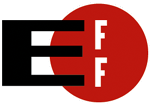Most people know about network effects. You know, the value of a network (to its users) increases with the number of users on that network.
The same is true of information. Look at Wikipedia and Linux.
Millions of users added an article or two each to Wikipedia, and now everyone has a whole encyclopedia. (Actually, most of the users didn’t even submit complete articles. They just added fragments. It still works.)
With Linux, a thousand people wrote a thousand small inter-operable programs, and we end up with a hundred prepackaged algorithmic ecologies (also known as distributions).
The difference between the network effect in communications networks, and the network effect in information goods is that when not limited by copyright, the value of information goods extends beyond the contributers.
Think about it. You have to join the telephone network for it to be valuable to you, but you don’t have to be a programmer to use Linux (though it helps).
The network becomes more valuable when the nodes are heterogeneous.
These ideas can translate to organizations. I say “organization” because it won’t work if it’s a company.
Companies exist to maximize profit, despite any negative consequences of doing so. Companies will want to lock information away, because it is more profitable (to the company) to create an artificial monopoly (on that information), even though it is less efficient from the market’s perspective.
So don’t make it a company. Make it into a loose group of individuals who collaborate to solve problems or complete projects as needed.
Let them discuss their projects and solutions publicly. This way information on techniques and solutions get documented, and the knowledge travels both within the organization, and outside it, building reputation for the solvers.
Reputation is always connected to a certain skill set. It makes sense that reputation for one skill won’t transfer to a skill in a completely different skill set. You can’t transfer reputation for cooking to reputation for programming. You could get partial transfer for programming in one language to another, because with experience, programming is a skill that becomes independent of the language used.
Have an online marketplace where tasks and projects can be auctioned off to be completed by the lowest bidder, while keeping the reputation of the bidder in mind to judge whether they have a suitable level of skill to complete any given task. (This includes bids by project organizers who then have to form a team.)
The essence of this concept is a fusion of two ideas: Bloggers and the Borg* combine to form the Blorg. The Blorg is a hive mob research organization, a tribe mind think tank, for solving problems and creating value.
Because of the nature of the organization, they would probably focus on cultivating exponential network effects. In other words, rather than solve single problems, they would attempt to solve that class of problems, in order that the problem need never be solved again.
*The Borg is an unrealistic construct specifically because they do not strive towards heterogeneous membership. Their specialization would breed weakness into the system.



Post a Comment